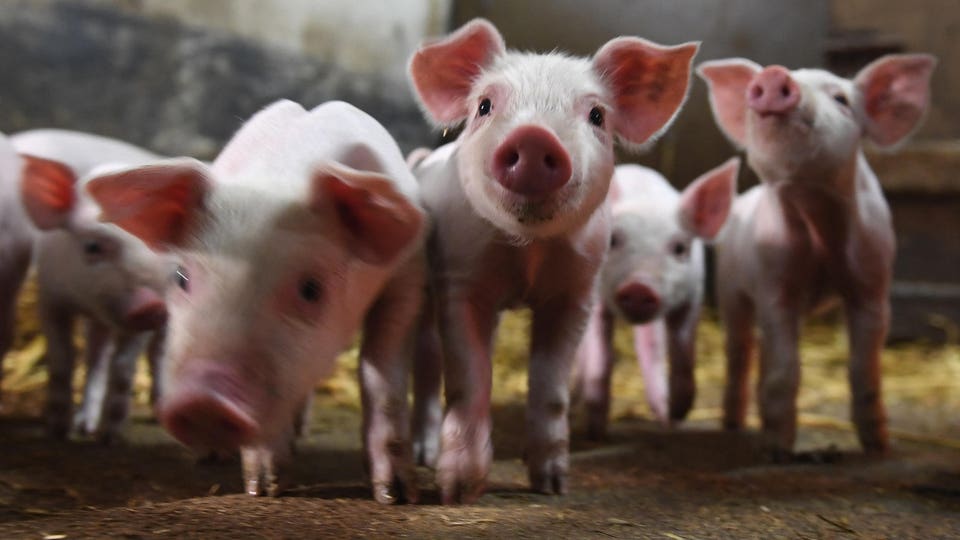Piglets on straw are seen on a farm, on December 15, 2017. (Photo by DAMIEN MEYER / AFP) (Photo by … [+] DAMIEN MEYER/AFP via Getty Images)
AFP via Getty ImagesA group of Congressional lawmakers are pushing to include the Ending Agricultural Trade Suppression Act as part of the 2023 Farm Bill. The legislation, known as The EATS Act, could have serious implications for animal welfare and cascading effects on farmer well-being, worker safety, the spread zoonoses, and pollution.
The EATS Act will nullify any state laws impacting agriculture in other states. A recent study by Harvard University found that it could jeopardize more than 1,000 public health, safety, and animal welfare laws, including many policies that have “not yet been identified and are unlikely to be intended targets of the legislation.”
The EATS Act comes in response to Proposition 12, a landmark law in California mandating better conditions for farm animals. Proposition 12 applies not only to farms in California, but also to those shipping products into the state. The law requires that farmers and companies provide more space for egg-laying hens and calves used for veal. The most talked-about provision bans the sale of pork from farms that raise pregnant pigs, or sows, in cramped gestation crates.
Opposition to Proposition 12 is not new. When the law was passed in 2018, opponents claimed it infringed on the rights of farmers and said moral judgments should be left to consumers. They argued that the Bill would drive up the cost of animal products. Members of the pork industry ultimately sued and lost when the Supreme Court voted to uphold Proposition 12 in October of 2022. But Prop 12—and similar laws—are under attack again.
The EATS Act would unfairly disadvantage both small and large farmers who have already adopted safe and humane practices. “There are a lot of farmers nationally who believe in [Proposition 12],” says Chris Oliviero, General Manager of Niman Ranch, in a recent panel conversation hosted by Food Tank. “Industry trade groups were positioning that there is only one view on this topic: that it’s bad for all farms. But we know of Niman Ranch, which has 600 farmers, and other companies in support of Prop 12 that weren’t saying anything.”
The bill may also increase the risk of zoonoses. “The EATS Act could have a devastating effect on farms by eliminating infectious disease safeguards for livestock entering states like Iowa,” said Chris Green, Executive Director of the Animal Law & Policy Program at Harvard University. “Because such inspection and sanitation requirements would qualify as ‚preharvest’ ‘standards or conditions,’ they easily could be challenged and gutted under the EATS Act.”
The EATS Act will also set an alarming precedent for future agricultural reforms. In a letter to the House Agriculture Committee, 150 lawmakers warned that the EATS Act will “harm America’s small farmers, threaten numerous state laws, and infringe on the fundamental rights of states to establish laws and regulations within their own borders.”
We cannot afford to turn back the progress we’ve made with Proposition 12. “Given that our country is experiencing its most severe outbreak of highly pathogenic avian influenza, and with African swine fever knocking at our borders’ doors,” said Chris Green, “every farmer concerned with the health and welfare of their herds and flocks should do everything they can to oppose the EATS Act and keep it out of the Farm Bill.”

